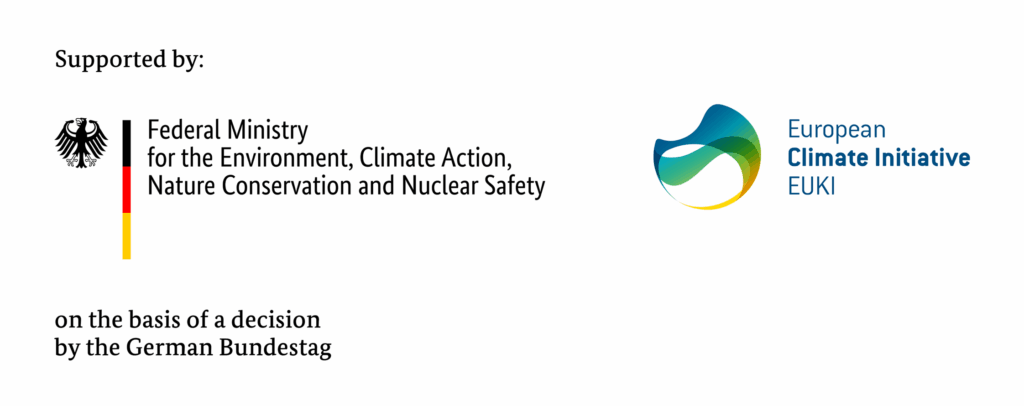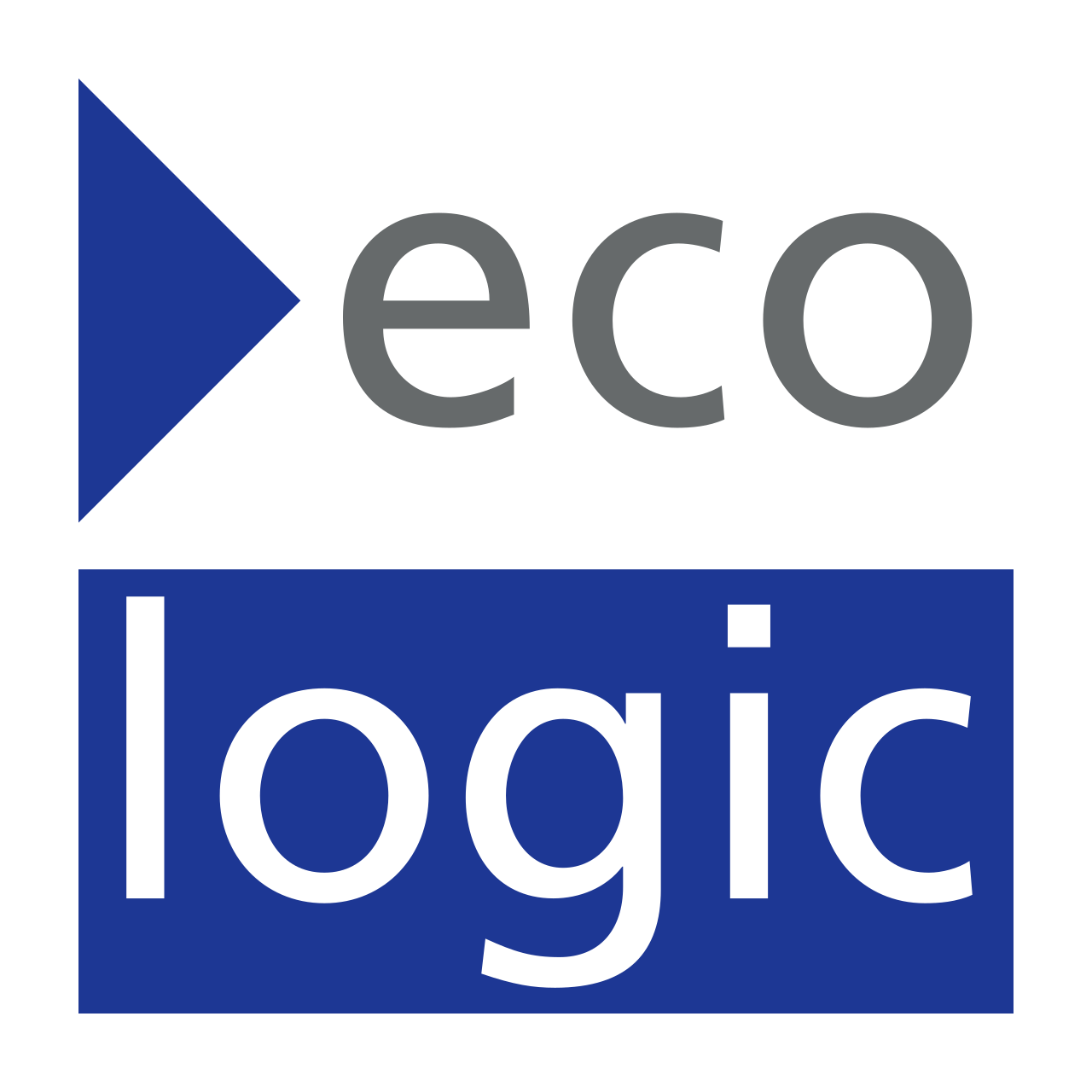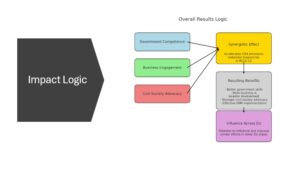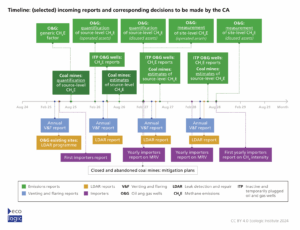The Bucharest University of Economic Studies (ASE), through its Faculty of Business Administration in foreign languages (FABIZ), is proud to coordinate the European project “I-MER: Implementing the EU Methane Emission Regulation”, funded by the European Climate Initiative (EUKI).
The project supports Romania and Czechia in the effective implementation of the new EU Methane Emissions Regulation, with a focus on governance, data, enforcement and stakeholder engagement.
Why methane matters
Methane (CH4) is the most impactful GHG after CO2. It is responsible for about one third of today’s global warming and, although short-lived, it has a warming impact 82.5 times stronger than CO₂ over a 20-year period.
Among all methane-emitting sectors – agriculture, waste and energy – the energy sector offers the most cost-effective and technically feasible options for reducing emissions.
Project objective
Our project aims to accelerate methane reduction trajectories in Romania (RO) and Czechia (CZ) by facilitating a stronger implementation of the upcoming EU Methane Regulation (EMR).
This objective is fully aligned with national and EU climate and energy strategies and policies. RO & CZ together account for approximately 1/4 of the EU’s energy-sector CH4 emissions, while facing low institutional capacity for implementation.
Target groups and approach
The project addresses key stakeholders in RO & CZ, including:
- government bodies,
- companies, and
- civil society organisations (CSOs).
I-MER supports these actors in effectively applying the EU Methane Regulation – a key instrument of the EU’s climate and energy policy. We foster dialogue between public authorities, companies and civil society, and provide them relevant knowledge and practical support, such as:
- analysis of satellite-based methane (CH₄) monitoring,
- business cases for methane reduction,
- examples of good practice in MER implementation.
High-level political support for this approach, including at ministerial level, is documented.
Expected outputs and outcomes
The main outputs of the project include:
- improved capacity within governmental bodies;
- virtuous business cases for companies and decision-making nudges for executives;
- empowered and better-focused civil society organisations.
The overall outcome is a more effective implementation of the EU Methane Regulation and reduced methane emissions.
Duration and funding
The project runs from December 2024 to December 2026 and is implemented in Romania and Czechia.
This project is part of the European Climate Initiative (EUKI). EUKI is a financing instrument of the German Federal Ministry for the Environment, Climate Action, Nature Conservation and Nuclear Safety (BMUKN). The EUKI project call is implemented by the Deutsche Gesellschaft für Internationale Zusammenarbeit (GIZ) GmbH. It is the overarching goal of the EUKI to foster climate cooperation within the European Union (EU) in order to mitigate greenhouse gas emissions.

Bucharest University of Economic Studies (ASE, Romania) – Coordinator
Founded in 1913, the Bucharest University of Economic Studies (ASE) is Romania’s leading institution for higher education in economics and business. ASE is recognized as an advanced research and education university, offering nationally and internationally accredited programs across economics, finance, business administration, and applied sciences. It consistently ranks among the top universities in Eastern Europe in QS and Times Higher Education rankings, and maintains active academic partnerships worldwide, contributing significantly to economic and policy research in the region.

Ecologic Institute (Germany)
Ecologic Institute is an independent, transdisciplinary research organization based in Berlin and Brussels. It conducts environmental research and provides policy analyses to support sustainable development. The institute is dedicated to preparing relevant sociopolitical aspects of sustainability research and contributing new knowledge to environmental policy. Its innovative research methods and practice-oriented approach ensure scientific excellence and social relevance.

Centre for Transport and Energy (CDE, Czechia)
Founded in 1998, CDE is a Czech non-profit non-governmental organization focusing on the environmental impacts of transportation and energy production. CDE aims to build and reinforce a wide platform of groups and individuals interested in working towards a sustainable transport and energy future, emphasizing the reduction of greenhouse gas emissions and the promotion of renewable energy sources.

Environmental Defense Fund Europe (EDF Europe)
EDF Europe is the European branch of the global nonprofit Environmental Defense Fund. EDF Europe works to advance world-class science and align market forces to achieve ambitious environmental goals. It collaborates with farmers, policymakers, and businesses to develop and implement solutions that reduce methane and other greenhouse gas emissions, particularly in agriculture and energy sectors, contributing to the EU’s climate targets.
Project Team (ASE)
- Corina Murafa
- Cristian Bușu
- Flavius Darie
- Vasile Strat
- Theodor Cojoianu
- Valentin Lazăr
- Miruna Proscanu
- Lucian Pamfile
External Experts & Collaborators
- Vasile Alecsandru Strat (ASE)
- Ioana Birlan (ASE)
- Teodora Cimpoi (Climate and energy communication expert)
- Mihai Stoica (2Celsius)
Project coordination & Contact
- Corina Murafa
- Faculty of Business Administration in Foreign Languages (FABIZ), ASE
- corina.murafa@fabiz.ase.ro
Our project aims to accelerate methane (CH₄) emission reductions in Romania (RO) and Czechia (CZ) by strengthening the implementation of the EU Methane Regulation (MER). This is achieved through coordinated action targeting public authorities, energy companies, investors and civil society, generating a cumulative and synergistic effect.
Among the resulting outcomes are:
1. Strengthened public authorities
As a result of the project, authorities in Romania and Czechia will:
- strengthen their capacity and technical competence to implement the EU Methane Regulation;
- gain access to best practice analyses, independent emissions data, including satellite analyses, and targeted analytical support;
- benefit from structured stakeholder dialogue, including multi-stakeholder roundtables and engagement with the business sector;
- operate in an environment of increased public and civil society scrutiny, supporting more effective enforcement.
2. Increased business and investor engagement
Targeted energy companies will be encouraged to:
- invest more actively in methane mitigation measures, supported by clear business case analyses;
- improve methane performance and compliance with MER requirements.
At the same time, institutional investors will be engaged to:
- support MER compliance,
- integrate methane performance into investment decisions,
- promote performance targets for company leadership in high-emitting companies.
3. Empowered civil society
Civil society organisations will:
- enhance their focus on methane emissions as a climate and energy priority;
- strengthen advocacy through capacity-building activities, engagement platforms and analytical support;
- gain access to reliable emissions data and tools enabling evidence-based advocacy at national and EU level.
Key activities supporting results
To deliver these results, the project undertakes the following core activities:
- Benchmarking governance structures and resource needs for EMR implementation through annual country analyses;
- Analysing regional methane emissions using satellite data to support independent verification;
- Demonstrating the business case for methane reduction in Romania’s energy sector;
- Identifying emission hotspots and asset ownership to enable targeted mitigation;
- Hosting annual multi-stakeholder roundtables to align MER compliance with business opportunities;
- Engaging institutional investors to drive methane performance targets in high-emitting companies;
- Supporting civil society organisations with data, tools and capacity-building;
- Communicating results and lessons learned through targeted outreach, events and an EU-wide online forum.
Overall impact
By reinforcing government competence, business engagement and civil society advocacy, the project generates a synergistic effect that leads to:
- more effective implementation of the EU Methane Regulation,
- accelerated methane emission reduction trajectories in Romania and Czechia,
- and the potential to inform and influence similar efforts across the European Union.
Project materials
- Short presentation (1 slide)
- Project overview
Reports & Deliverables
- Implementing the EU Methane Regulation in Romania. A practical guide for public authorities – May 2025 (EN) | (RO)
- Romania’s Draft Penalty Rules for violations of the EU Methane Regulation – December 2025 (EN)
Factsheets & Guides
Articles & Expert Contributions
- Article: “Reducing methane emissions. Will Romania live up to expectations?”, Energynomics.ro Magazine, ISSN 2344-6447, vol 46, no. 1-2025, pag. 94-97 (RO & EN).
- Article: “Reducing methane emissions in the energy sector: a priority for Romania”, Mesagerul Energetic Magazine, CNR-CME, ISSN: 2066-4974, vol. XXV, no. 239, pag. 12-14 (RO).
Capacity-Building Workshop for Civil Society on the EU Methane Regulation
Bucharest, FABIZ | 13 November 2025 (09:00 – 16:00)
The training workshop brought together civil society organisations interested in reducing methane emissions from the energy sector and in supporting the effective implementation of the EU Methane Regulation.
Through expert-led and interactive sessions, participants explored the role of methane in climate change, emissions sources in Romania’s energy sector, monitoring and satellite data, legal mechanisms, and concrete ways NGOs can contribute to enforcement, community protection and public communication.
Speakers and contributors
- Prof. Dr. Cristi Bușu – Vice-Rector, Bucharest University of Economic Studies (ASE)
- Mihai Stoica – Workshop organiser, 2Celsius
- Prof. Dr. Thomas Röckmann – Utrecht University, the Netherlands
- Andreea Calcan – Acting Director, International Methane Emissions Observatory (UNEP/IMEO)
- Meghan Demeter – Programme Manager, MARS, International Methane Emissions Observatory (UNEP/IMEO)
- Sabina Assan – Coal Mine Methane Analyst, Ember
- Erika Fiala-Butora – Lawyer, Environmental and Human Rights Center (Hungary)
- Théophile Humann-Guilleminot – Senior Campaign Manager, Methane Pollution Prevention, Clean Air Task Force
- Zitely Tzompa – Research Director, Methane Pollution Prevention, Clean Air Task Force
- Teodora Cimpoi – Climate and energy communication expert
Programme highlights
- Introduction to the I-MER project and workshop objectives.
- Methane emissions in the energy sector: sources, impacts, monitoring, satellite data and regulatory mechanisms.
- Urban research case study on methane emissions and sources in Bucharest and Ploiești.
- Complaint mechanisms, imports and performance standards under the EU Methane Regulation.
- How NGOs can contribute to implementation, advocacy and public communication.
Stakeholder Roundtable on the EU Methane Regulation
Bucharest, ASE | 09 December 2025 (09:00 – 14:00)
The stakeholder roundtable brought together public authorities, industry representatives, civil society organisations and experts to discuss challenges and opportunities related to the implementation of the EU Methane Regulation in Romania.
The discussions focused on regulatory requirements, institutional capacity, business implications and practical pathways for reducing methane emissions in the energy sector.
Press releases
Media coverage
- Economica.net: Emergency ordinance on reducing methane emissions in the energy sector could be adopted by the end of the year – State Secretary at the Ministry of Energy (RO)
- Adevărul.ro: Methane is making the planet sick. Romania plays a major role at European level in reducing methane emissions (RO)
- TheDiplomat.ro: Romania’s major role at European level in reducing methane emissions. Conclusions from the ASE Bucharest Roundtable (EN)
- Energynomics.ro: Measures to reduce methane emissions can be profitable – I-MER
June 13, 2025
The Bucharest University of Economic Studies (ASE), through its Faculty of Business Administration in foreign languages (FABIZ), is proud to coordinate the European project “I-MER: Implementing the EU Methane Emission Regulation”, funded by the European Climate Initiative (EUKI).
The project supports Romania and Czechia in the effective implementation of the new EU Methane Emissions Regulation, with a focus on governance, data, enforcement and stakeholder engagement.
Why methane matters
Methane (CH4) is the most impactful GHG after CO2. It is responsible for about one third of today’s global warming and, although short-lived, it has a warming impact 82.5 times stronger than CO₂ over a 20-year period.
Among all methane-emitting sectors – agriculture, waste and energy – the energy sector offers the most cost-effective and technically feasible options for reducing emissions.
Project objective
Our project aims to accelerate methane reduction trajectories in Romania (RO) and Czechia (CZ) by facilitating a stronger implementation of the upcoming EU Methane Regulation (EMR).
This objective is fully aligned with national and EU climate and energy strategies and policies. RO & CZ together account for approximately 1/4 of the EU’s energy-sector CH4 emissions, while facing low institutional capacity for implementation.
Target groups and approach
The project addresses key stakeholders in RO & CZ, including:
- government bodies,
- companies, and
- civil society organisations (CSOs).
I-MER supports these actors in effectively applying the EU Methane Regulation – a key instrument of the EU’s climate and energy policy. We foster dialogue between public authorities, companies and civil society, and provide them relevant knowledge and practical support, such as:
- analysis of satellite-based methane (CH₄) monitoring,
- business cases for methane reduction,
- examples of good practice in MER implementation.
High-level political support for this approach, including at ministerial level, is documented.
Expected outputs and outcomes
The main outputs of the project include:
- improved capacity within governmental bodies;
- virtuous business cases for companies and decision-making nudges for executives;
- empowered and better-focused civil society organisations.
The overall outcome is a more effective implementation of the EU Methane Regulation and reduced methane emissions.
Duration and funding
The project runs from December 2024 to December 2026 and is implemented in Romania and Czechia.
This project is part of the European Climate Initiative (EUKI). EUKI is a financing instrument of the German Federal Ministry for the Environment, Climate Action, Nature Conservation and Nuclear Safety (BMUKN). The EUKI project call is implemented by the Deutsche Gesellschaft für Internationale Zusammenarbeit (GIZ) GmbH. It is the overarching goal of the EUKI to foster climate cooperation within the European Union (EU) in order to mitigate greenhouse gas emissions.

Bucharest University of Economic Studies (ASE, Romania) – Coordinator
Founded in 1913, the Bucharest University of Economic Studies (ASE) is Romania’s leading institution for higher education in economics and business. ASE is recognized as an advanced research and education university, offering nationally and internationally accredited programs across economics, finance, business administration, and applied sciences. It consistently ranks among the top universities in Eastern Europe in QS and Times Higher Education rankings, and maintains active academic partnerships worldwide, contributing significantly to economic and policy research in the region.

Ecologic Institute (Germany)
Ecologic Institute is an independent, transdisciplinary research organization based in Berlin and Brussels. It conducts environmental research and provides policy analyses to support sustainable development. The institute is dedicated to preparing relevant sociopolitical aspects of sustainability research and contributing new knowledge to environmental policy. Its innovative research methods and practice-oriented approach ensure scientific excellence and social relevance.

Centre for Transport and Energy (CDE, Czechia)
Founded in 1998, CDE is a Czech non-profit non-governmental organization focusing on the environmental impacts of transportation and energy production. CDE aims to build and reinforce a wide platform of groups and individuals interested in working towards a sustainable transport and energy future, emphasizing the reduction of greenhouse gas emissions and the promotion of renewable energy sources.

Environmental Defense Fund Europe (EDF Europe)
EDF Europe is the European branch of the global nonprofit Environmental Defense Fund. EDF Europe works to advance world-class science and align market forces to achieve ambitious environmental goals. It collaborates with farmers, policymakers, and businesses to develop and implement solutions that reduce methane and other greenhouse gas emissions, particularly in agriculture and energy sectors, contributing to the EU’s climate targets.
Project Team (ASE)
- Corina Murafa
- Cristian Bușu
- Flavius Darie
- Vasile Strat
- Theodor Cojoianu
- Valentin Lazăr
- Miruna Proscanu
- Lucian Pamfile
External Experts & Collaborators
- Vasile Alecsandru Strat (ASE)
- Ioana Birlan (ASE)
- Teodora Cimpoi (Climate and energy communication expert)
- Mihai Stoica (2Celsius)
Project coordination & Contact
- Corina Murafa
- Faculty of Business Administration in Foreign Languages (FABIZ), ASE
- corina.murafa@fabiz.ase.ro
Our project aims to accelerate methane (CH₄) emission reductions in Romania (RO) and Czechia (CZ) by strengthening the implementation of the EU Methane Regulation (MER). This is achieved through coordinated action targeting public authorities, energy companies, investors and civil society, generating a cumulative and synergistic effect.
Among the resulting outcomes are:
1. Strengthened public authorities
As a result of the project, authorities in Romania and Czechia will:
- strengthen their capacity and technical competence to implement the EU Methane Regulation;
- gain access to best practice analyses, independent emissions data, including satellite analyses, and targeted analytical support;
- benefit from structured stakeholder dialogue, including multi-stakeholder roundtables and engagement with the business sector;
- operate in an environment of increased public and civil society scrutiny, supporting more effective enforcement.
2. Increased business and investor engagement
Targeted energy companies will be encouraged to:
- invest more actively in methane mitigation measures, supported by clear business case analyses;
- improve methane performance and compliance with MER requirements.
At the same time, institutional investors will be engaged to:
- support MER compliance,
- integrate methane performance into investment decisions,
- promote performance targets for company leadership in high-emitting companies.
3. Empowered civil society
Civil society organisations will:
- enhance their focus on methane emissions as a climate and energy priority;
- strengthen advocacy through capacity-building activities, engagement platforms and analytical support;
- gain access to reliable emissions data and tools enabling evidence-based advocacy at national and EU level.
Key activities supporting results
To deliver these results, the project undertakes the following core activities:
- Benchmarking governance structures and resource needs for EMR implementation through annual country analyses;
- Analysing regional methane emissions using satellite data to support independent verification;
- Demonstrating the business case for methane reduction in Romania’s energy sector;
- Identifying emission hotspots and asset ownership to enable targeted mitigation;
- Hosting annual multi-stakeholder roundtables to align MER compliance with business opportunities;
- Engaging institutional investors to drive methane performance targets in high-emitting companies;
- Supporting civil society organisations with data, tools and capacity-building;
- Communicating results and lessons learned through targeted outreach, events and an EU-wide online forum.
Overall impact
By reinforcing government competence, business engagement and civil society advocacy, the project generates a synergistic effect that leads to:
- more effective implementation of the EU Methane Regulation,
- accelerated methane emission reduction trajectories in Romania and Czechia,
- and the potential to inform and influence similar efforts across the European Union.
Project materials
- Short presentation (1 slide)
- Project overview
Reports & Deliverables
- Implementing the EU Methane Regulation in Romania. A practical guide for public authorities – May 2025 (EN) | (RO)
- Romania’s Draft Penalty Rules for violations of the EU Methane Regulation – December 2025 (EN)
Factsheets & Guides
Articles & Expert Contributions
- Article: “Reducing methane emissions. Will Romania live up to expectations?”, Energynomics.ro Magazine, ISSN 2344-6447, vol 46, no. 1-2025, pag. 94-97 (RO & EN).
- Article: “Reducing methane emissions in the energy sector: a priority for Romania”, Mesagerul Energetic Magazine, CNR-CME, ISSN: 2066-4974, vol. XXV, no. 239, pag. 12-14 (RO).
Capacity-Building Workshop for Civil Society on the EU Methane Regulation
Bucharest, FABIZ | 13 November 2025 (09:00 – 16:00)
The training workshop brought together civil society organisations interested in reducing methane emissions from the energy sector and in supporting the effective implementation of the EU Methane Regulation.
Through expert-led and interactive sessions, participants explored the role of methane in climate change, emissions sources in Romania’s energy sector, monitoring and satellite data, legal mechanisms, and concrete ways NGOs can contribute to enforcement, community protection and public communication.
Speakers and contributors
- Prof. Dr. Cristi Bușu – Vice-Rector, Bucharest University of Economic Studies (ASE)
- Mihai Stoica – Workshop organiser, 2Celsius
- Prof. Dr. Thomas Röckmann – Utrecht University, the Netherlands
- Andreea Calcan – Acting Director, International Methane Emissions Observatory (UNEP/IMEO)
- Meghan Demeter – Programme Manager, MARS, International Methane Emissions Observatory (UNEP/IMEO)
- Sabina Assan – Coal Mine Methane Analyst, Ember
- Erika Fiala-Butora – Lawyer, Environmental and Human Rights Center (Hungary)
- Théophile Humann-Guilleminot – Senior Campaign Manager, Methane Pollution Prevention, Clean Air Task Force
- Zitely Tzompa – Research Director, Methane Pollution Prevention, Clean Air Task Force
- Teodora Cimpoi – Climate and energy communication expert
Programme highlights
- Introduction to the I-MER project and workshop objectives.
- Methane emissions in the energy sector: sources, impacts, monitoring, satellite data and regulatory mechanisms.
- Urban research case study on methane emissions and sources in Bucharest and Ploiești.
- Complaint mechanisms, imports and performance standards under the EU Methane Regulation.
- How NGOs can contribute to implementation, advocacy and public communication.
Stakeholder Roundtable on the EU Methane Regulation
Bucharest, ASE | 09 December 2025 (09:00 – 14:00)
The stakeholder roundtable brought together public authorities, industry representatives, civil society organisations and experts to discuss challenges and opportunities related to the implementation of the EU Methane Regulation in Romania.
The discussions focused on regulatory requirements, institutional capacity, business implications and practical pathways for reducing methane emissions in the energy sector.
Press releases
Media coverage
- Economica.net: Emergency ordinance on reducing methane emissions in the energy sector could be adopted by the end of the year – State Secretary at the Ministry of Energy (RO)
- Adevărul.ro: Methane is making the planet sick. Romania plays a major role at European level in reducing methane emissions (RO)
- TheDiplomat.ro: Romania’s major role at European level in reducing methane emissions. Conclusions from the ASE Bucharest Roundtable (EN)
- Energynomics.ro: Measures to reduce methane emissions can be profitable – I-MER

